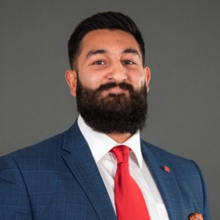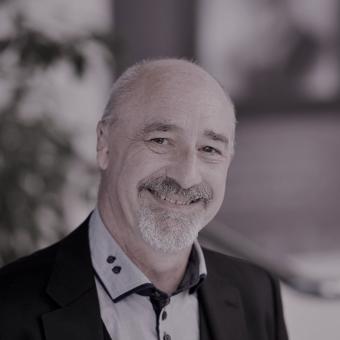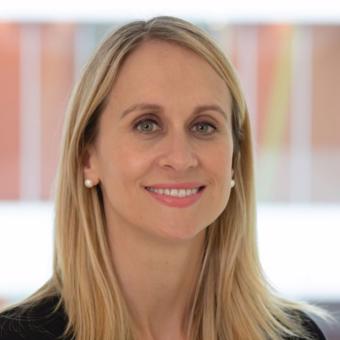Bal Atwal joined the in-house team at West Midlands Police in November 2020. He tells The Brief about the opportunities to make a positive contribution that his new role offers, and a career built on pride in his city.
For young professionals, starved of the daily interactions that were previously taken for granted as part of office life, there are precious few silver linings to the pandemic. However, one benefit from the move to home working could be that, for some, it has led to a reassessment of their careers, and prompted them to make positive decisions about their futures.
One such individual is Bal Atwal, who recently joined the growing in-house legal team at West Midlands Police as a Legal Advisor, specialising in property and commercial law.
Atwal was born and bred in Birmingham, studied law at the University of Birmingham, and completed his LPC at the University of Law in Birmingham. He is, he says, “very passionate about my city and my region”.
After university he trained at the Birmingham office of international law firm Trowers and Hamlins, qualifying into real estate. In 2018 he joined the global firm DLA Piper, working as an associate in the property team at its Birmingham office.
He had been with DLA Piper for 18 months, working on a range of large commercial property deals around the city, nationally and globally, when the first lockdown was imposed last March.
He says, “I think for a lot of people it made everyone’s working experience very much the same. I lost all the perks of working for a big international law firm – it was literally just me and my laptop, which is what work is for everyone right now.”
Pushing the boundaries
This realisation led him think about where his career was headed, and what his next step might be. “I started looking around and thinking about what else I could do with my legal career, what I could do with my practice certificate,” he continues.
“I was looking at lots of different opportunities – I was very curious as to what I could do with my legal career, and I always like to push those boundaries. I’d spent two years training at Trowers and Hamlins, which was a great international law firm, I’d spent a year and a half at DLA, one of the largest law firms in the world and I thought to myself, ‘I’ve done the best-quality work that’s out there in terms of private practice, so what’s in-house like, what can a solicitor do outside of private practice?’
“And I think the lockdown made me push beyond what was in front of me. So I looked at joining the Army as a legal officer, I looked at the Department for Education, I looked at all these different organisations and exciting opportunities, and that’s when the Police role came up.”
This job, he says “screamed out at me”, and he joined the team in November 2020.
West Midlands Police is the second-largest police force in the country, covering an area of 348 square miles and serving a population of almost 2.8 million. “There are just so many different layers and aspects to the role, which you don’t really get in almost any other organisation, and it is, so far, very interesting and rewarding,” Atwal continues.
Commonwealth Games
His work at West Midlands Police is divided between property and commercial law. The property element includes buying and selling police property, entering into licenses over land for training purposes and/or office space, and securing the assets required to support the policing resources that go into events like next year’s Commonwealth Games in Birmingham and this year’s UK City of Culture programme in Coventry.
Preparations for policing the forthcoming Commonwealth Games, in particular, are generating a significant volume of legal work. Atwal explains, “From a property perspective the police need specific sites across the West Midlands to support their officers, whether it’s briefing hubs or refreshment hubs.
“You’ve got to think about the baton relay, traffic powers, all sorts of logistics that go on, but of which the public only really see the surface. These all need the correct documentation and the correct powers in place.”
Scope for growth
The commercial side of his role at West Midlands Police, meanwhile, is mainly focused around contract law. This includes drafting everything from confidentiality agreements and non-disclosure agreements to straightforward letters and ad hoc advice.
“It’s quite a wide range of work,” he says. “I think that’s the pull of working in-house as opposed to a private practice law firm where you do the same thing, but for different clients, every day.”
There is also scope within the role, he continues, to get involved in other areas of legal practice in the future. “It’s very much down to me if I want to do the research and the extra training courses, my team are supportive and want to see me develop,” he says.
“I’ve got that flexibility and I think I’m developing not just as a lawyer but as a professional.”
Making a contribution
Atwal says his initial interest in studying law came out of a combination of academic aptitude for subjects like English and History and “an urge to make a difference and have a positive impact on people’s lives”.
This urge to make a contribution extends to the wider legal profession, and he is currently Chair of the Birmingham Solicitors’ Group, a networking and support organisation for junior lawyers around the West Midlands. He took over as Chair during the pandemic and has, so far, been focused on online and social media activity which, he says, “will be a fantastic springboard when we finally have our first live event, which will hopefully be in the next few months”.
He is also an Ambassador for City Sikhs, a registered charity with its origins in London which is currently establishing itself in the West Midlands and other regions. It connects members from a wide range of professions via professional networking, holds inter-faith events and also carries out lobbying activity.
Another group for which Atwal is an Ambassador, and in which he has been involved since university, is Aspiring Solicitors. This group, he says, is particularly valuable because it enables law students from a diverse range of backgrounds, who might not have contacts in the profession, to make connections with lawyers at all levels. This is making the profession more transparent and accessible for all.
Civic pride
His desire to make a contribution and his pride in his city have been key motivating factors for Atwal throughout his career, including his time in private practice. People might not always associate commercial property with social purpose but, for him, “It was about supporting my city and my region, building it up aesthetically and physically.”
Now, he says, he continues to be motivated by supporting his region, but at a more personal level. He explains, “In this role there has been a shift toward helping the people in the West Midlands, helping my colleagues in the police – whether it’s police staff or police officers, because my clients are my colleagues now.
“I’m helping out police officers at all levels. That’s a very rewarding thing because I know that they are literally on the front line, doing a very, very important job.
“Moving in-house, and more specifically into the public sector, the culture isn’t about money or the chargeable hour, it’s about quality of work, it’s about the quality of your relationship with your client who is also your colleague.”












